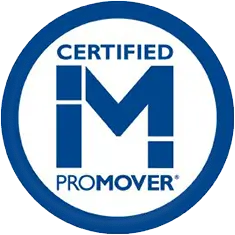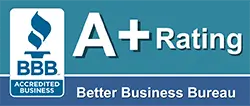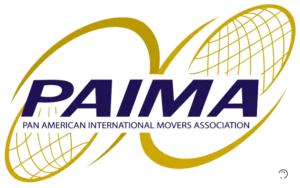When it comes to moving, whether across town or across the country, the choice of moving company is one of the most critical decisions you’ll make. Opting for movers who are licensed and insured can have a profound impact on your experience. This article delves into the importance of selecting the right moving service and the advantages that come with hiring licensed and insured professionals.
Understanding the Basics of Moving Services
Moving services can vary widely in terms of the offerings, quality, and assurance they provide. Understanding the fundamental aspects of moving services is vital for making an informed choice. This section will explore key components of these services, particularly focusing on licensing and insurance.
What Does Licensing Mean for Movers?
Licensing for movers signifies that they have met certain regulatory requirements set by governing bodies. These requirements often include passing background checks, ensuring safety measures, and maintaining specific operational standards. A licensed mover adheres to local and national regulations, giving you confidence in their ability to perform the job efficiently and legally.
Moreover, licensing can be seen as a benchmark of professional credibility. Companies that hold proper licenses are often invested in their reputation and are less likely to engage in fraudulent practices. Before choosing a mover, it’s beneficial to inquire about their licensing status to safeguard your belongings and ensure your peace of mind. Additionally, licensed movers are often required to follow specific protocols for handling disputes, which can be an invaluable resource should any issues arise during your move. This added layer of protection can make a significant difference in your overall moving experience.
The Role of Insurance in Moving Services
Insurance is another crucial aspect when selecting a moving company. It provides a financial safety net against unforeseen circumstances such as damage to your belongings during transit. A reputable moving company usually offers various types of insurance options, allowing customers to choose a plan that best fits their needs.
Without insurance, you could be left bearing the burden of any losses or damages incurred during the move. Whether it’s a scratched sofa or a broken heirloom, having coverage means you can claim compensation, alleviating potential tensions that could arise during an already stressful process. Furthermore, understanding the different types of insurance—like full value protection versus released value protection—can empower you to make a more informed decision. Full value protection covers the entire value of your items, while released value protection offers minimal coverage at no additional cost. Knowing these distinctions can help you select the right level of protection for your belongings, ensuring that you are adequately covered throughout the moving process.
The Risks of Hiring Unlicensed and Uninsured Movers
While the temptation might be to save money by hiring unlicensed and uninsured movers, the risks involved far outweigh any short-term savings. Understanding these risks is crucial for protecting both your belongings and financial investment.
Potential Financial Implications
Hiring unlicensed movers may seem like a cost-effective solution, but it can lead to significant out-of-pocket expenses. Without insurance, any damage to your property means you are responsible for the costs associated with repairs or replacements. Consider the financial implications of losing high-value items, which could far exceed the savings of going for a cheaper, unlicensed option.
In addition, if the moving company causes damage to your home, you’ll have to pay for repairs out of your own pocket. These financial burdens can quickly accumulate, making your “savings” turn into a costly mistake.
Legal Consequences to Consider
Going with unlicensed movers can also have legal ramifications. Should any disputes arise—such as damage claims or contract issues—you may find yourself with little recourse. Licensed movers are bound by regulatory standards and consumer protection laws, which protect you should something go wrong.
Furthermore, using unlicensed services might expose you to potential liability issues. If the movers get injured while handling your possessions, you may be held responsible. Understanding these legal implications is essential when making your decision.
Benefits of Hiring Licensed and Insured Movers
Incorporating licensed and insured movers into your relocation plans can ease many of the common worries associated with moving. The benefits certainly outweigh the costs, making such companies the savvy choice for responsible consumers.
Protection of Your Belongings
One of the foremost benefits is the extensive protection afforded to your belongings. Licensed and insured movers take the responsibility of handling your items seriously. They’re trained and equipped to secure, transport, and protect your valuables, which reduces the likelihood of loss or damage.
Insurance further enhances this protection, providing peace of mind that your possessions are safeguarded financially. Should any issues arise during the move, you can rest easy knowing that you have the means to recover losses, making the entire moving experience less stressful.
Professionalism and Accountability
Hiring licensed and insured movers also means you’re opting for professionalism and accountability. These companies are more likely to invest in quality service, staff training, and customer satisfaction initiatives. They understand the importance of maintaining a good reputation and are motivated to deliver exceptional service.
Accountability comes into play when you need to address concerns or disputes. Licensed movers are required to adhere to specific ethical and operational standards, ensuring that your concerns will be taken seriously and resolved adequately. Reliable service makes for a more seamless moving experience.
How to Verify a Moving Company’s Credentials
Now that you understand the significance of hiring licensed and insured movers, how do you verify a moving company’s credentials? This section outlines essential steps to ensure your movers are properly licensed and insured.
Checking for Licensing Information
Begin your verification process by checking local and national databases that offer licensing information for moving companies. Many states have public resources where you can verify a mover’s license status. Make a call or send an email to the regulatory body if you encounter any issues or have questions about their licensing.
Asking the moving company for their license number is also a straightforward step. A legitimate mover will not hesitate to share this information with you. If they are evasive or dismissive, it may be a red flag.
Confirming Insurance Coverage
In addition to licensing, confirming a company’s insurance coverage is vital. Request proof of insurance and carefully review the details of what it covers. Ensure that they have liability insurance that specifically protects against damage and loss during the moving process.
Consider asking about additional coverage options and what claims process entails should you need to make a claim. Knowing this upfront can save you from headaches later.
Tips for Choosing the Right Moving Company
Finally, here are some practical tips to help you choose the right moving company for your needs. Armed with knowledge about licensing and insurance, you can proceed with clarity and confidence.
Questions to Ask Potential Movers
Your interaction with potential movers can be very revealing. Ask questions that clarify their licensing, insurance, experience, and processes. Inquire about staff training, moving equipment, and what protocols they follow while moving valuables.
Additional questions could include asking for references from previous clients and details on their claims process. The more information you gather, the easier it will be to make a sound decision.
Red Flags to Watch Out For
When evaluating moving companies, be vigilant for red flags that may indicate a scam or unreliable service. Be wary of companies that demand large upfront deposits or those that provide vague estimates without a formal written contract.
Pay attention to the quality of communication as well. Companies that are unresponsive or unprofessional during the initial stages are likely to carry that behavior throughout the entire moving process.
By following these guidelines, you can ensure a smoother move and greater peace of mind, knowing that your belongings are in safe hands.
















